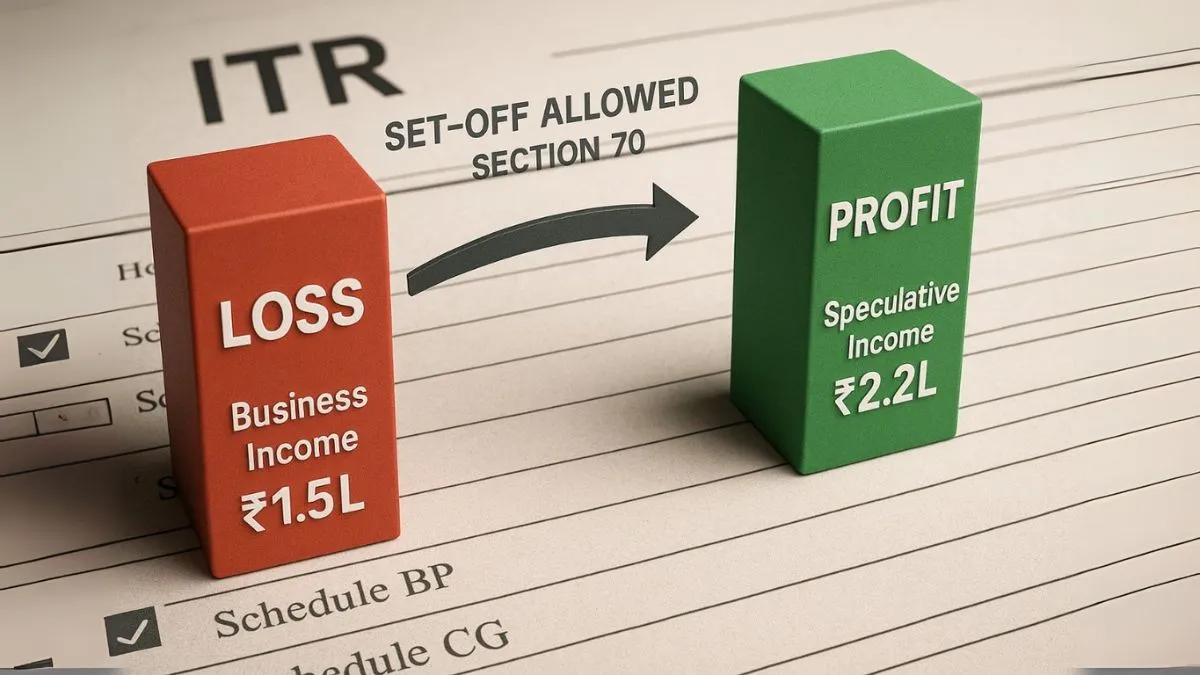
In the ever-complex maze of income tax filing, Section 70 of the Income Tax Act, 1961, is a much-needed relief for taxpayers facing income inconsistencies. Especially relevant for freelancers, small businesses, investors, and even salaried individuals with multiple income streams, it deals with one crucial aspect: how to manage losses efficiently for tax purposes.
💡 What Does Section 70 Say?
Section 70 of the Income Tax Act deals with the set off of losses from one source against income from another source under the same head of income. In simple terms, if you’ve earned from one source and made a loss from another (but both fall under the same head), you can offset that loss to reduce your taxable income.
🧾 Example to Understand Set-Off of Loss
Let’s say you have two businesses. Business A earns you ₹5 lakhs, while Business B incurs a loss of ₹2 lakhs. Since both fall under the head "Profits & Gains from Business or Profession," you can set off the ₹2 lakh loss from Business B against the ₹5 lakh gain from Business A. You’ll only be taxed on the net ₹3 lakhs.
This helps in lowering your tax burden significantly."
✅ Conditions Under Section 70
To ensure clarity and avoid misuse, certain conditions apply to the set off:
- The loss and income must be from the same head of income.
- You cannot set off a loss from a speculative business against a non-speculative one, even if both fall under the same business head.
- Losses from illegal businesses cannot be adjusted against any income.
- Short-term capital losses can be set off against both short-term & long-term capital gains, but long-term capital losses can be set off only against long-term capital gains.
These conditions help the Income Tax Department regulate genuine loss claims while still giving honest taxpayers relief.
🧠 Why Section 70 Matters
When dealing with volatile incomes like in the share market, mutual funds, property income, or freelancing gigs, your income may vary dramatically. Some sources may be profit-making, while others might result in losses.
Thanks to Section 70, if you lose money from a source of income, you still get a tax benefit by setting off that loss against income from another source under the same head.
It ensures that you're taxed only on your real net income, not just on your gross receipts.
🔍 Comparison: Section 70 vs. Section 71 vs. Section 72
- Section 70: Set off within the same head of income.
- Section 71: Set off of loss from one head of income against income from another head (e.g., business loss against salary income).
- Section 72: Carry forward and set off of business losses in future years.
These sections work in tandem to ensure no income or loss is ignored in the tax computation process.
📌 Key Takeaways
- Section 70 of the Income Tax Act is all about the set off of losses from one source against income from another source under the same head of income.
- Helps reduce taxable income by considering real gains after adjusting losses.
- Must be used in compliance with prescribed rules, especially when it comes to speculative business & capital gains.
- Plays a crucial role in the treatment of losses and offers genuine relief to businesses and individuals facing fluctuating incomes."
🔗 A Final Word…
Filing taxes when you have multiple sources of income can get confusing. But understanding how to optimise your tax liability using provisions like Section 70 is crucial. And guess what? You don’t have to do it alone.
Want to make sure your losses are correctly set off & your tax bill is accurate?
Let our expert CAs guide you through smart tax filing.
👉 Explore our tax filing services on Callmyca.com











